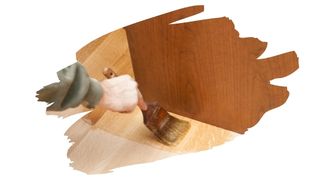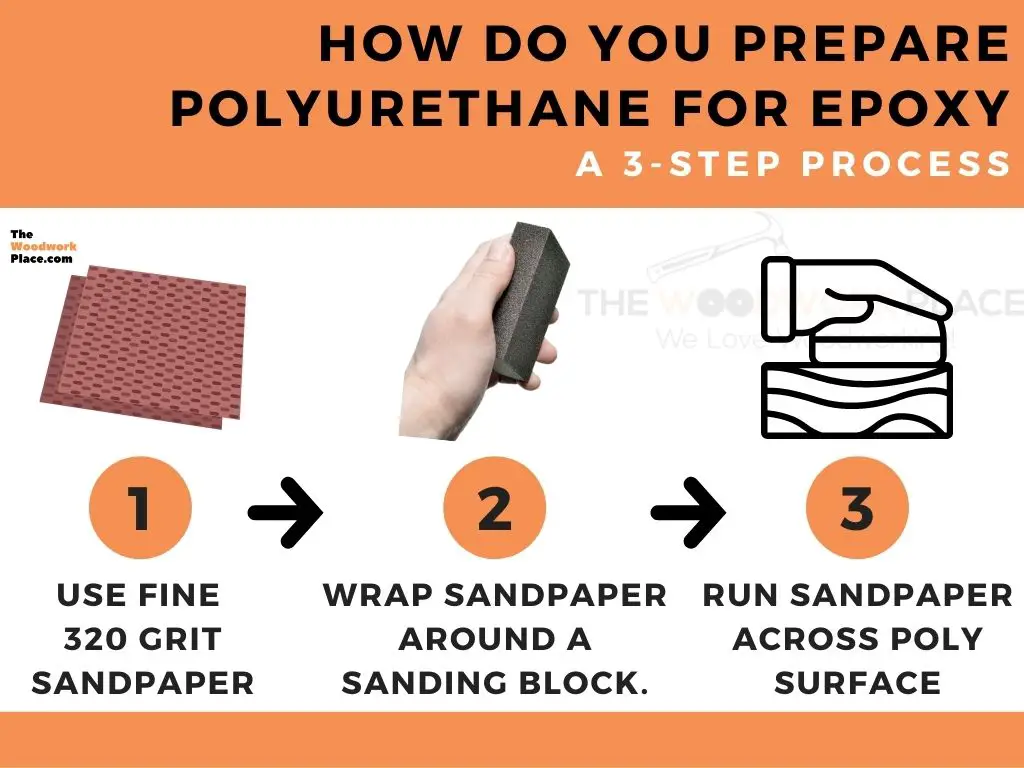A reader emailed us recently with an idea they had about using epoxy in a rather inventive way.
They wanted to apply an epoxy coat over polyurethane in an attempt to help further harden that final polyurethane coat.
Now, this approach to wood finishing is a bit unusual, because typically things are the other way around. We tend to apply polyurethane over epoxy instead.
Using the epoxy as more of a wood filler than a sealing coat, you apply poly over it to finish things off.
But using epoxy over polyurethane? Can it be done?
Epoxy can be applied over polyurethane. But the brittle nature of epoxy means that, by using it as a final top coat, your finished wood will be less scratch-resistant overall.
You see, while epoxy resin is made of harder stuff than polyurethane, it is also more rigid than poly. Polyurethane, on the other hand, has a little bit of give in it… even after it cures. That bit of give means that polyurethane is better able to shrug off any abrasions.
In other words, if you apply epoxy over polyurethane, it will in fact make that woodwork piece – such as a table top – more (not less) susceptible to wear and tear.
So here are some things you need to think about before you rush off to apply that resinous stuff…

This post may contain affiliate links to products that we receive a commission for (at no additional cost to you). Learn more here.
Are Polyurethane And Epoxy Pretty Much The Same Thing?
While both of these sealants can waterproof wood, they are still two very different types of material – right down to their molecular level. Which is why the benefits they give to lumber also differ.
Polyurethane is UV resistant, has more elasticity, and more durability than epoxy. It dries quickly too, much faster than epoxy.
Related Post: Polyurethane Not Drying? What You Can Do To Fix It
But it is polyurethanes scratch resistance, (combined with its ability to shrug off the degradation effects of sunlight), that makes it such a fantastic top coat choice.
Epoxy, on the other hand, is some really tough stuff. Often used to coat flooring in garages, its highly heat resistant and can handle heavy impacts.
Does Polyurethane React With Epoxy? Studies have shown that when these two are mixed together, epoxy will cure into a less brittle resin.
Can You Apply Epoxy Over An Oil Based Polyurethane?
Epoxy will bond to either oil-based or water-based polyurethane. However, in either case, you will need to sand up a film of fine dust for the epoxy layer to stick to.
How Do You Prepare Polyurethane For An Epoxy Top Coat?
You should prep poly by sanding it – very, very lightly – first:
- 1). Get your hands on some very fine 320 grit sandpaper.
- 2). Wrap the sandpaper around a sanding block.
- 3). With a featherlight touch, stroke the sandpaper across the polyurethane surface.

Once this prep is done, it will make it easier for epoxy to stay on a polyurethane coat evenly. The aim here isn’t to sand it down, you are simply looking to create little bits on the surface. Enough so that the epoxy coat will stay in place.
Basically, it is the same kind of prep you would do in between applying coats of polyurethane anyway. Which is a subject we cover everything on in our article here: Does Polyurethane Hide Sanding Marks? (7 Things You Need To Know)
So To Sum Up…
Although you can coat poly with epoxy, there isn’t a really good reason to do so.
When applied the other way around, a poly top coat will make epoxy more durable. Plus, it can give epoxy enough UV protection to prevent it from yellowing over time as well.
But, an epoxy top coat will take away a lot of polyurethanes advantages in terms of its ability to handle wear and tear.



